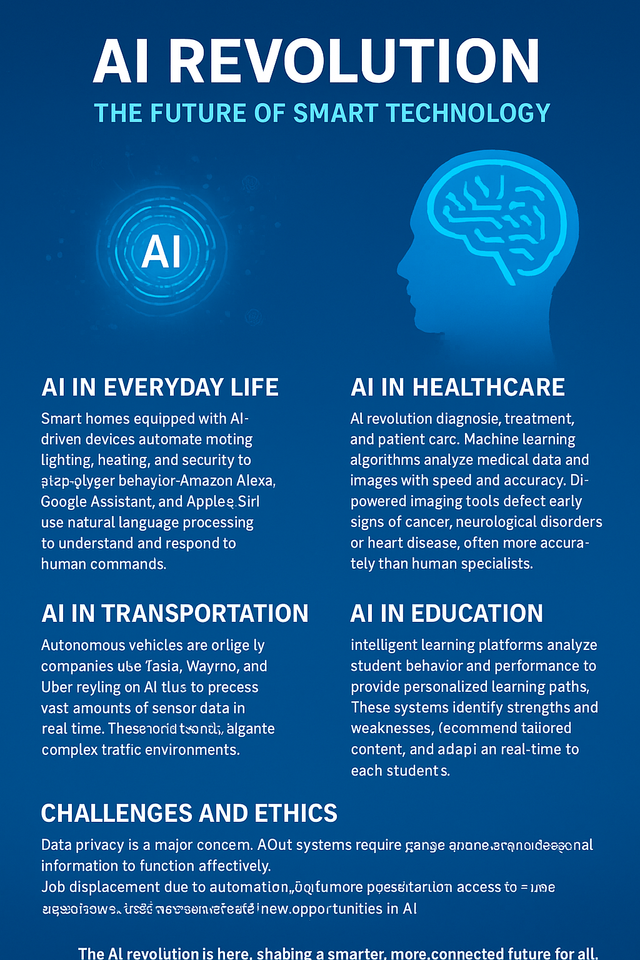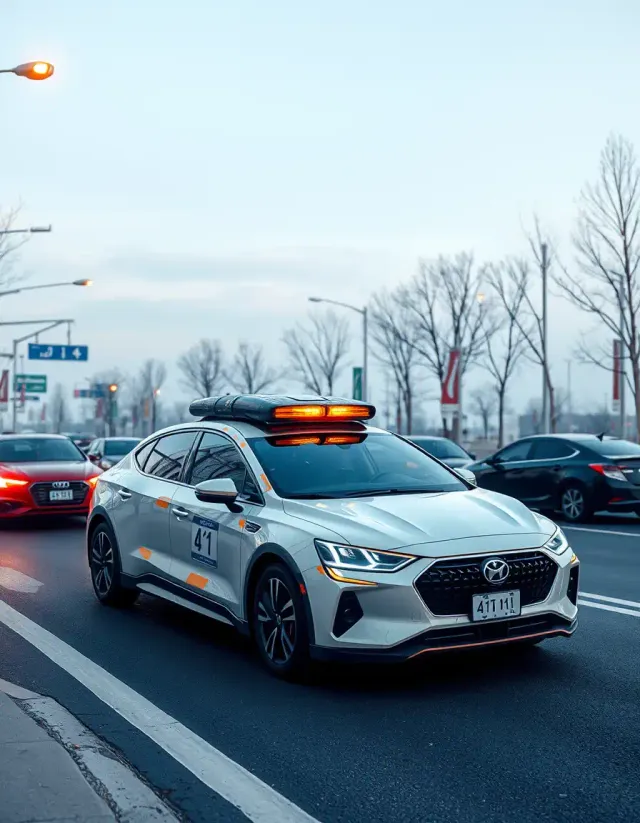The Future of Smart Technology
Artificial Intelligence (AI) is no longer just a futuristic concept seen in science fiction movies. It has become an integral part of our daily lives and is transforming the way we live, work, and communicate. From smart homes and personal assistants to autonomous vehicles and healthcare innovations, AI is reshaping industries and opening up new possibilities that were unimaginable just a decade ago.
One of the most visible applications of AI is in smart technology for everyday life. Smart homes, equipped with AI-driven devices, can automate lighting, heating, and security systems based on user behavior. Devices like Amazon Alexa, Google Assistant, and Apple’s Siri use natural language processing to understand and respond to human commands, making life more convenient and connected. Beyond convenience, AI helps save energy by optimizing usage patterns and contributes to a sustainable lifestyle.
In the healthcare sector, AI is revolutionizing diagnosis, treatment, and patient care. Machine learning algorithms can analyze medical data and images with incredible speed and accuracy. For instance, AI-powered imaging tools can detect early signs of cancer, neurological disorders, or heart disease, often more accurately than human specialists. Virtual health assistants help monitor patients, remind them to take medications, and provide instant access to medical advice. The integration of AI in healthcare promises better outcomes, reduced costs, and more personalized patient care.
Autonomous vehicles are another groundbreaking example of AI in action. Companies like Tesla, Waymo, and Uber are developing self-driving cars that rely on AI to process vast amounts of sensor data in real-time. These vehicles can navigate complex traffic environments, predict potential hazards, and make instant decisions that enhance road safety. In the near future, AI-driven transportation could reduce accidents, ease traffic congestion, and even transform urban planning by optimizing traffic flow and parking systems.
The education sector is also benefiting from AI. Intelligent learning platforms analyze student behavior and performance to provide personalized learning paths. These systems can identify strengths and weaknesses, recommend tailored content, and adapt in real-time to each student’s learning pace. AI tutors and chatbots make education more accessible, especially in remote areas, ensuring that learners receive guidance and support regardless of geographical limitations.
Despite the exciting potential of AI, it also presents several challenges and ethical considerations. Data privacy is a major concern, as AI systems often require large amounts of personal information to function effectively. Without proper safeguards, sensitive data could be misused or exposed to cyber threats. Similarly, job displacement due to automation is a pressing issue. AI can perform tasks previously handled by humans, which could lead to significant changes in the workforce. Governments, corporations, and educators must work together to reskill employees and create new opportunities in AI-driven industries.
AI ethics and governance are becoming critical areas of focus. Developers and policymakers are increasingly aware of the need to ensure transparency, fairness, and accountability in AI systems. Bias in AI algorithms can lead to unfair decisions, especially in areas like hiring, lending, or law enforcement. Establishing ethical guidelines and regulations is essential to ensure that AI technologies are used responsibly and benefit society as a whole.
Looking ahead, the future of smart technology powered by AI is incredibly promising. Emerging trends include AI in augmented reality (AR) and virtual reality (VR), which can enhance gaming, training, and remote collaboration. AI-powered robotics are being developed for industrial automation, disaster response, and even companionship. Predictive analytics in business and finance allows companies to make smarter decisions, anticipate market trends, and improve operational efficiency. The possibilities are virtually limitless, limited only by our imagination and ethical boundaries.
For individuals, embracing AI means staying informed about technological trends and understanding how AI can enhance personal and professional life. Learning AI skills, exploring smart devices, and experimenting with AI-driven applications can help people adapt to this rapidly changing landscape. The AI revolution is not just about machines taking over tasks; it’s about collaboration between humans and intelligent systems to create a smarter, more efficient, and innovative world.
In conclusion, AI is driving a revolution in smart technology that is shaping the present and the future. From transforming daily life with smart homes and personal assistants to revolutionizing healthcare, education, transportation, and business, AI’s impact is profound and far-reaching. While challenges such as privacy, ethics, and workforce disruption exist, thoughtful implementation and responsible use can ensure that AI benefits humanity. By understanding and embracing AI, we can participate in building a smarter, more connected future. The AI revolution is not coming—it’s already here, and its potential is limitless.

.webp)
.webp)

.webp)
.webp)